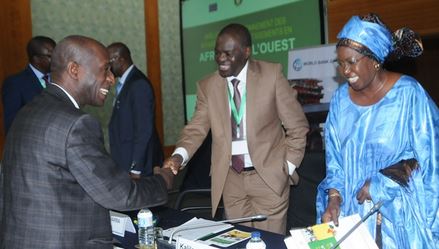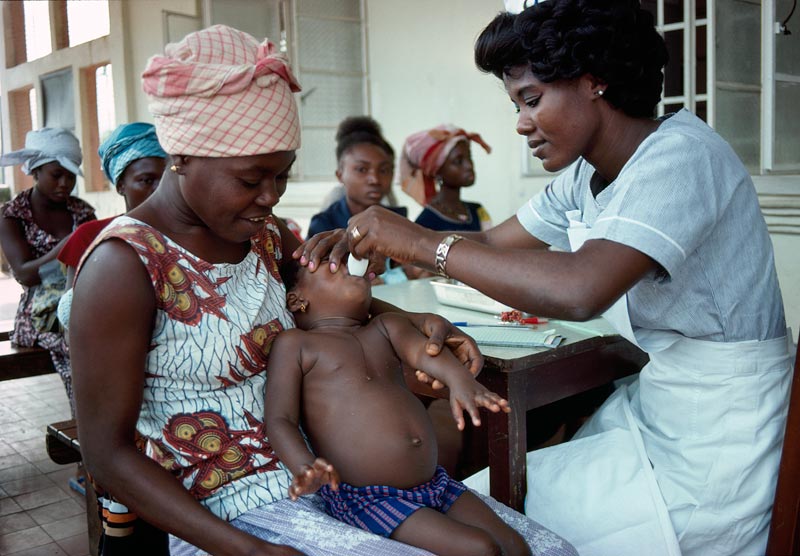[vc_row][vc_column width=”1/2″][vc_column_text]
Economic Community of West African States
The Kingdom of Dahomey, which dominated West Africa in the 17th century, achieved a profitable economic relationship with its neighbours – of a sort. They waged war and captured thousands of fellow Africans which they then sold to insatiable European traders who shipped them off to the New World. The lucrative slave trade was the mainstay of the kingdom's economy for two centuries. While that episode is now just a bitter memory, the region is trying hard to overcome significant obstacles to prosperity by working together in a more harmonious and equitable manner. The Economic Community of West African States (ECOWAS) is a union of 15 countries – Cape Verde, The Gambia, Guinea, Guinea-Bissau, Liberia, Mali, Senegal, Sierra Leone, Benin, Burkina Faso, Ghana, Ivory Coast, Niger, Nigeria and Togo - with a total population of almost 350 million. Its aim, upon its foundation in 1975, was the promotion of economic integration across the West African region. The group later concentrated its focus on achieving self-sufficiency through the creation of a single trading area with complete economic union. It has also taken on a peace-keeping role in recent years, with forces from member states acting in unison under the ECOWAS banner to tackle internal instances of instability or unrest. This force has intervened militarily in Ivory Coast, Liberia, Guinea-Bissau, Mali and The Gambia in recent years. ECOWAS has also set up its own parliament and court of justice. Tensions in the group often relate to issues of language. Eight of the member states are French-speaking while five speak English and two Portuguese – a legacy of the region's imperial past. The French-speaking group, for instance, frequently group together to counter what they perceive to be the dominance of English-speaking members, including titans like Nigeria and Ghana. For instance, monetary union is being pursued, separately, by both clusters. The region has challenges elsewhere which threaten stability and economic progress, including: over-population, internal terrorism, piracy, political instability, drugs, corruption and frequent outbreaks of disease. Elections in the majority of member states rarely pass off without episodes of violent protest.
What trade deals are there with other countries and economic unions?
None
[/vc_column_text][/vc_column][vc_column width=”1/2″][vc_column_text]Member Countries
|
Country |
Population (2018) |
GDP Growth (2021, %) |
Date Joined |
|---|---|---|---|
11,485,674 |
6.6000 |
28/05/1975 |
|
19,751,651 |
6.9063 |
28/05/1975 |
|
553,335 |
6.9524 |
01/01/1977 |
|
24,905,843 |
7.0215 |
28/05/1975 |
|
2,163,765 |
5.6265 |
28/05/1975 |
|
29,463,643 |
5.3565 |
28/05/1975 |
|
13,052,608 |
3.1232 |
28/05/1975 |
|
1,907,268 |
3.8000 |
28/05/1975 |
|
4,853,516 |
4.0000 |
28/05/1975 |
|
19,107,706 |
3.0699 |
28/05/1975 |
|
22,311,375 |
1.3521 |
28/05/1975 |
|
195,875,237 |
3.6472 |
28/05/1975 |
|
16,294,270 |
6.0645 |
28/05/1975 |
|
7,719,729 |
3.0502 |
28/05/1975 |
|
7,990,926 |
5.2606 |
28/05/1975 |
Enhancing Integration, Unlocking Investment in West Africa
NEPAD: Improving Frontline Healthcare in Africa
Loading, Please Wait!
This may take a second or two.















































































